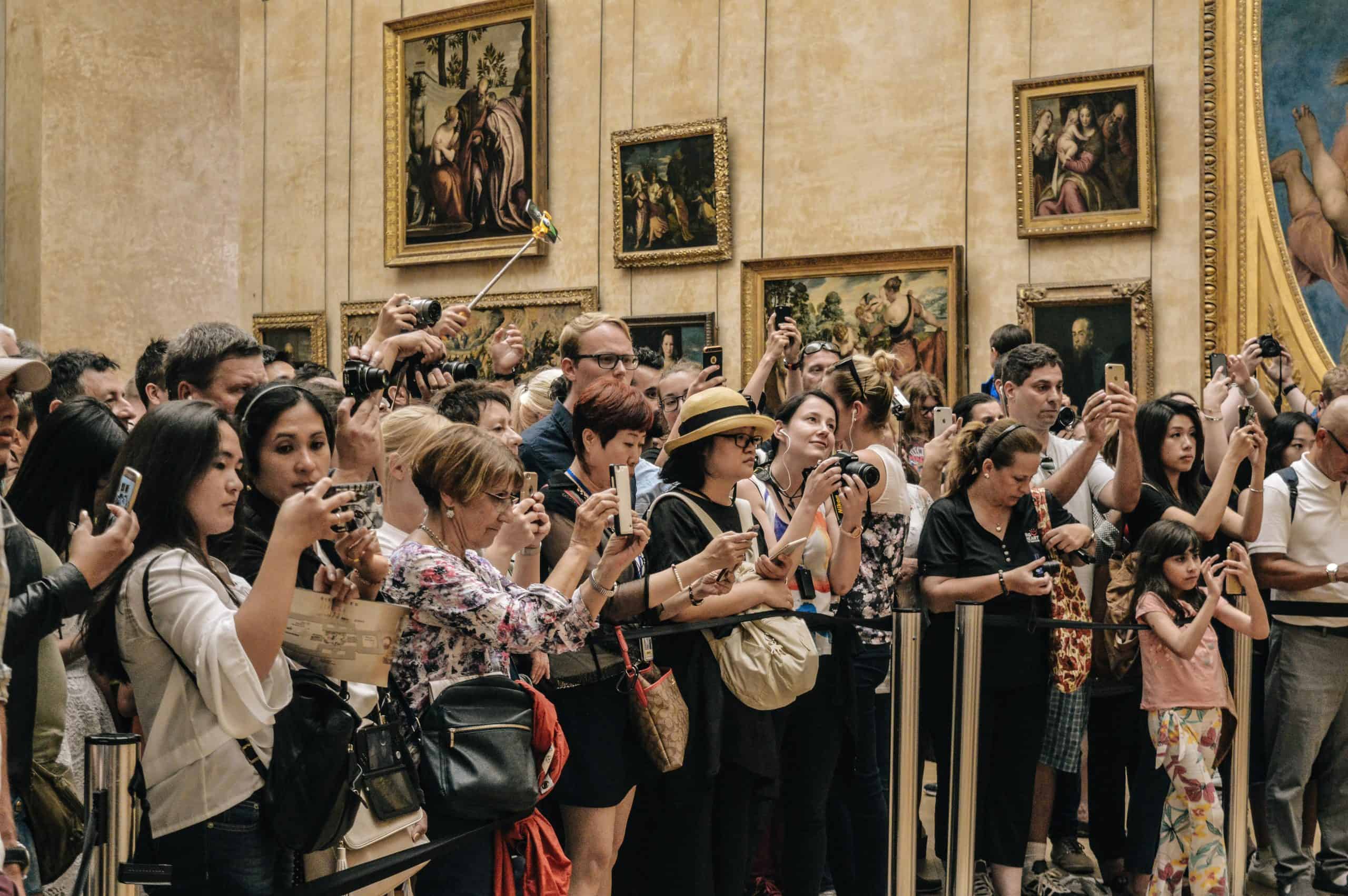Just over a year ago, I found myself standing awestruck in the Blue Mosque in Istanbul, Turkey.
I craned my neck to admire the colorful tilework as sunlight streamed through the window. I felt the floor beneath my feet and heard the whispers of people around me. With my back to the other tourists, I was lulled by the rhythmic movements of people in prayer.
After several minutes of silent observation, I noticed movement out of the corner of my eye: Two young women were hamming it up for a series of selfies. After posing for a couple minutes, they headed for the door without ever observing, listening, or feeling the history and culture woven into this well-known spiritual space.
To state the obvious, the Blue Mosque is not a selfie background. I honestly wonder if these two women would have even walked in if they were prohibited from taking photos.
The Blue Mosque is not a selfie background.
It’s probably not surprising that social media plays a big role when it comes to inspiring travel choices, but the extent to which social media influences decision-making is quite astounding. Recent surveys have found that 61% of Millennials are influenced to travel to destinations due to how Instagram-friendly they are. Additionally, 29% said they wouldn’t go somewhere if they couldn’t post the destination on social media.
Yes, you read that right: More than a quarter of Millennials wouldn’t visit a place if they couldn’t share it on their social media channels.
Often, one of the best ways to solve a problem is to get to the root of the issue. In the age of overtourism, it’s tempting to ask if destinations suffering from overcrowding should simply ban photography.
In theory, this offers a three-fold solution:
- A lack of posts on social media wouldn’t attract people who look for inspiration strictly through channels like Instagram and Facebook.
- It would keep people away who aren’t interested in visiting a place beyond using it for a backdrop. It would also be a good reminder for those who do visit to be more present.
- A lack of selfie sticks and cameras means that everyone can enjoy a destination under more favorable conditions.
This is a potential solution for addressing overtourism — and one that is being used in some places. But is it the right solution?
Consider this perspective: Smartphones and digitalization have made it easier for everyone to take photos. In fact, 1.2 trillion photos were taken in 2017. That’s a huge increase from the 660 billion taken in 2013.
Giving people access to this creative outlet is a good and powerful thing. But with photography comes a sense of responsibility — a responsibility to think about other people, cultural norms and expectations, and the environment — before snapping a picture. It’s something people seem to have forgotten in the age of the smartphone.
Instead of banning photography to address overtourism, perhaps the ultimate solution is for everyone to approach destinations with a sense of humility and humanity.
Instead of banning photography to address overtourism, perhaps the ultimate solution is for everyone to approach travel with a sense of humility and humanity. Maybe it’s time to check in with ourselves — to remind ourselves to respect others and use basic manners — before we reach for that smartphone or camera in a new destination.
There are legitimate reasons why photography is banned in some places, and people need to respect these bans.
But the idea of banning photography isn’t just a possible solution for addressing overtourism. It’s also a good reminder that sometimes the perfect solution doesn’t have to be part of a marketing campaign or scheme to get people to act (or not to act) in a certain way.
Sometimes, the simple and mindful decisions made by each individual have the potential to solve a major problem.



